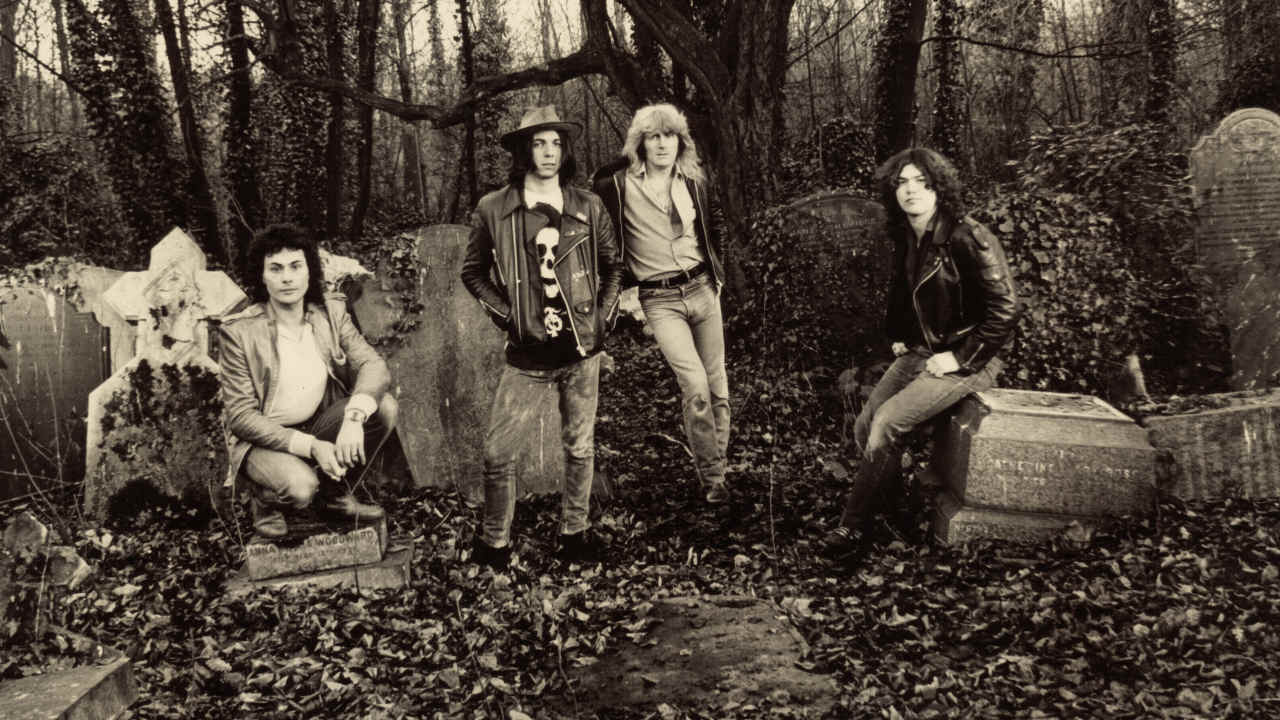
When Pagan Altar released their self-titled demo in 1982, it wasn’t just their music that intrigued the few people who were paying attention. “Pagan Altar are actual practicing Satanists,” declared US zine Whiplash when reviewing Pagan Altar – the mysterious London quartet’s first appearance in the international metal press, and one of the last for many years.
As with several other bands in the early 80s, the devoutness of Pagan Altar’s diabolism may have been somewhat sensationalised, but on the subject of their shadowy, mystical, Sabbath-school proto-doom metal, Whiplash’s spot-on assessment still stands up: “The band does produce a strange feeling of dread in their music... These guys sound like they really want your soul!”
Pagan Altar are one of the greatest, if most enigmatic doom bands the metal scene has ever produced. But where the likes of Pentagram, Trouble, St Vitus and Candlemass have been rightly celebrated for the contribution to doom, Pagan Altar have never received the widespread credit they’re due.
They were the brainchild of vocalist Terry Jones and his guitarist son Alan, who started the band in 1978 (though the familial connection was initially kept vague). The two spent five years refining their musical vision, amassing a wealth of unreleased demo material at their own Pagan Studios facility in Brockley, South London.
According to band lore this Victorian building was built on a crossroads where witches were burnt, and teemed with ghostly activity. One early bassist was found sitting pale and petrified in the corner murmuring “I’ve seen it, I’ve seen it,” insisting that a woman in black had drifted across the studio before dropping through the floor. Little wonder Terry and Alan had to work around a continuously revolving door of rhythm sections.
The Pagan Altar demo contained 40 minutes of hard-hitting occultic heavy metal drenched in gothic folk-horror atmospherics, presenting a far spookier prospect than their nearest contemporaries on the New Wave Of British Heavy Metal circuit. Witchfinder General sang about sex, drugs and rock’n’roll in between dabbling with diabolism, but Pagan Altar deployed only the most oppressively dark themes.
To bring this atmosphere to life, the band’s ambitiously elaborate stage show was based on a Satanic church theme, with an altar draped in velvet, human skulls burning incense, inverted crosses, black candles, a coffin belching dry ice, bandmates processing onstage in hooded black robes, Satanic invocations and explosive pyrotechnics.
Yet record companies weren’t biting. By 1983 the NWOBHM bubble had burst. Occult imagery was increasingly unfashionable, while the latest metallic trends - glam and thrash - were worlds away from Pagan Altar’s “slow paced brain picking metal in the early 70s tradition” (another spot-on appraisal from Whiplash zine).
Overlooked and left behind, Pagan Altar gave up the ghost sometime in 1986. Once again, their timing wasn’t great; Candlemass soon released the landmark Epicus Doomicus Metallicus, effectively kickstarting the doom genre in earnest. A freakishly cult micro-scene slowly mushroomed into a flourishing global movement, while Pagan Altar’s visionary stack of old tapes kept gathering dust.
When a bootlegger pressed the 1982 demo to vinyl, Terry and Alan resolved to remaster and release the recordings via their own Oracle Records imprint. Finally the world was ready for Pagan Altar; the CD had an inspirational impact on a new generation of doomhounds, excited to uncover this astonishing missing link in doom history. Consequently, in 2004 Pagan Altar reformed and released two excellent collections of rerecorded archive material, Lords Of Hypocrisy and Magical & Mythical, showcasing the timeless charm of Terry’s declamatory nasal storytelling and Alan’s effusive guitar heroism. Work on a fourth album was shelved when results fell short of the Joneses’ expectations, but tragically, with the recordings in limbo, in 2015 Terry died of cancer.
Resolving to honour his dad’s legacy, Alan rerecorded the material and released The Room Of Shadows in 2017. A concert to launch its release, with American singer Brendon Radigan, was intended as a celebratory endpoint, but the band continue playing, slowly piecing together a new LP. Appropriately, like the witch’s ghost in their old studio, Pagan Altar refuses to die.







